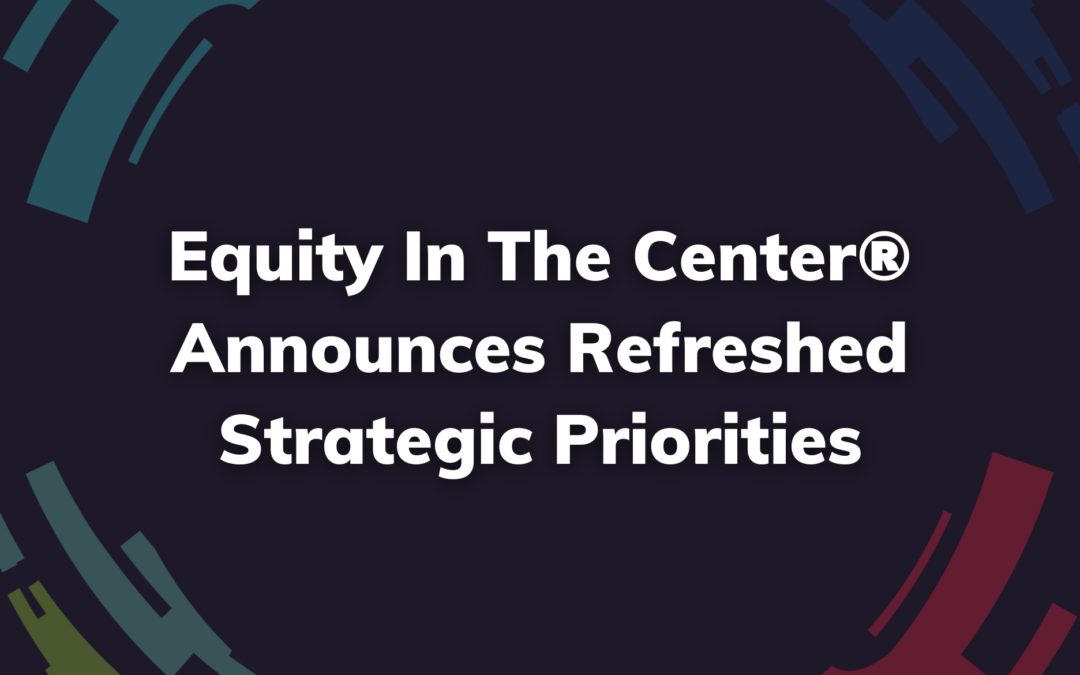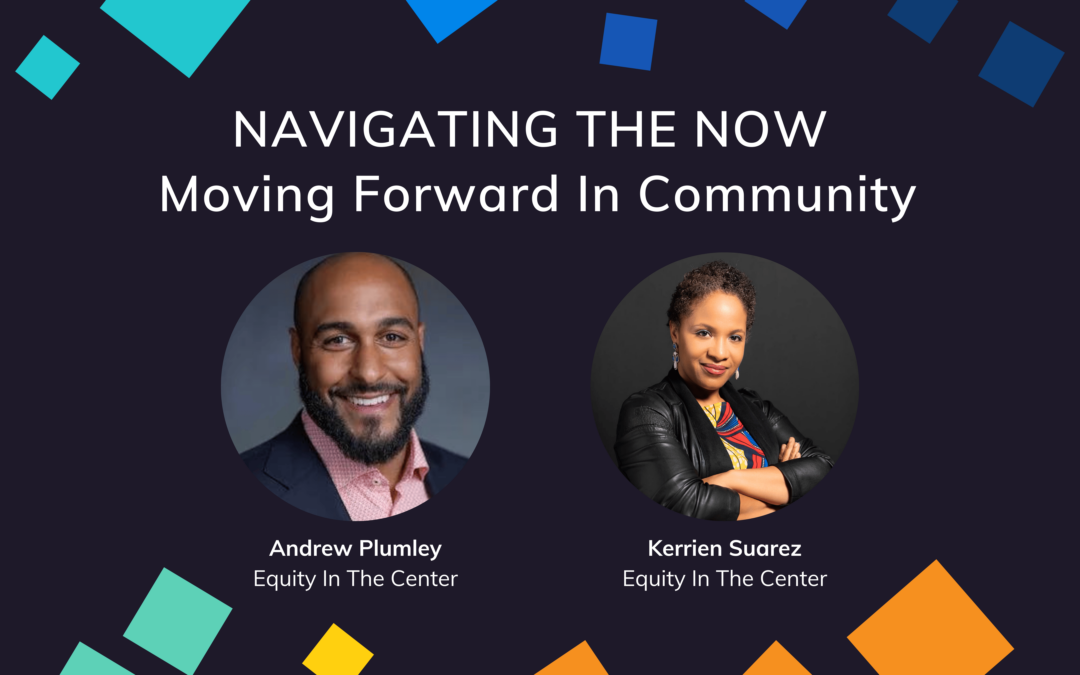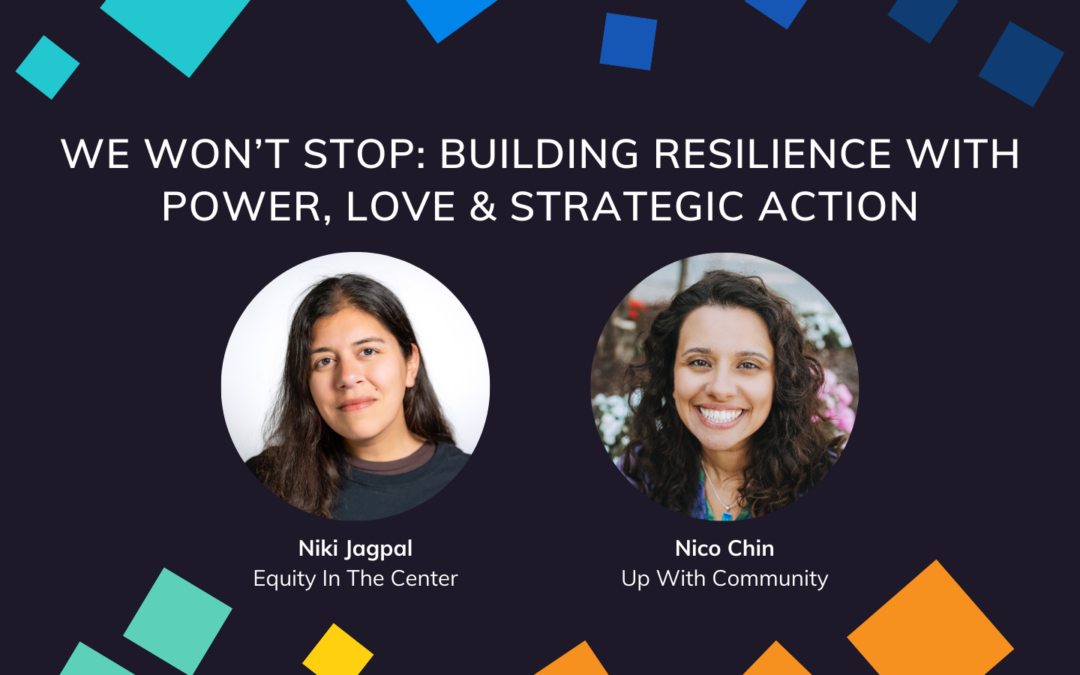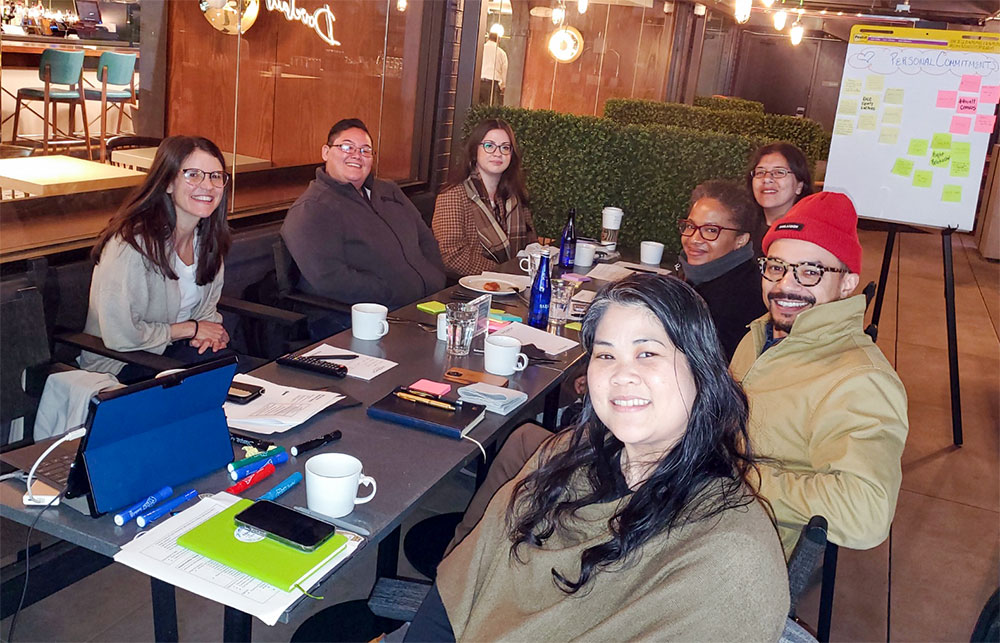
Natalie Thomas (BFM) and EIC Staff Miyo Hall-Kennedy, Sandra Herrera, Niki Jagpal, Kerrien Suarez, Juan Serrano, and Herna Cruz-Louie are seated around a table during the EIC May 2023 Retreat in Washington, DC. They are pictured posing while developing shared team commitments on a flip chart filled with post-it notes.
Embracing difficult conversations is essential towards building a Race Equity Culture™ – not just in external organizations, but also internally at Equity In The Center (EIC). Our team extends immense gratitude to our partners and consultants at Building For Mission (BFM) for their unwavering support and guidance with this (and much more) over the past two years. Their transformative partnership has been a crucial part of our nonprofit start-up journey as we continue to grow and lean into our values.
The following blog has been adapted from BFM’s LinkedIn, as part of their #BFMTeamEngagement series, to share their work in supporting EIC’s capacity to have difficult conversations.
BFM: Why did EIC invest in developing your team’s capacity to have difficult conversations?
EIC: As an organization seeking to center race equity and mitigate white supremacy, our work is rife with difficult conversations – we are working to operationalize equity internally while advancing it sector-wide in an environment where compliance and legalities do not always align with our values. Conversations about race equity are often challenging and complex, so having this support (plus team and individual coaching to build practical skills) is critically important to us in leaning into our values and being transparent about our journey to build a Race Equity Culture™ at EIC.
BFM: What skills and practical tools has BFM shared that have supported EIC in difficult conversations at work?
EIC: We’ve gained language for naming harm through oops, ouch, and risk chips; goal-setting tools that keep us on the same page about what we are working towards RGAs (Roles, Goals, Activities); and systems for developing transparent accountability within the team RAP (Responsible, Accountable, and Provides). This combination of shared language and transparent accountability has promoted our ability to have difficult conversations as a team.
BFM: What have you learned about difficult conversations through your partnership with BFM?
EIC: BFM has been foundational in asking us the right questions so that we can continue to explore how to improve communications and accountability within our team as individuals and as a group. With BFM’s support, we were able to come to a consensus on how to put our values into practice through co-developing agreed norms. But we’ve also learned that this is just a starting point; the tools are only as good as we use and commit to them. Accountability for implementation and follow-through is a critical component of holding each other to our values and the work that needs to get done.
To learn more about the incredible work Building for Mission does, please visit their website and LinkedIn.
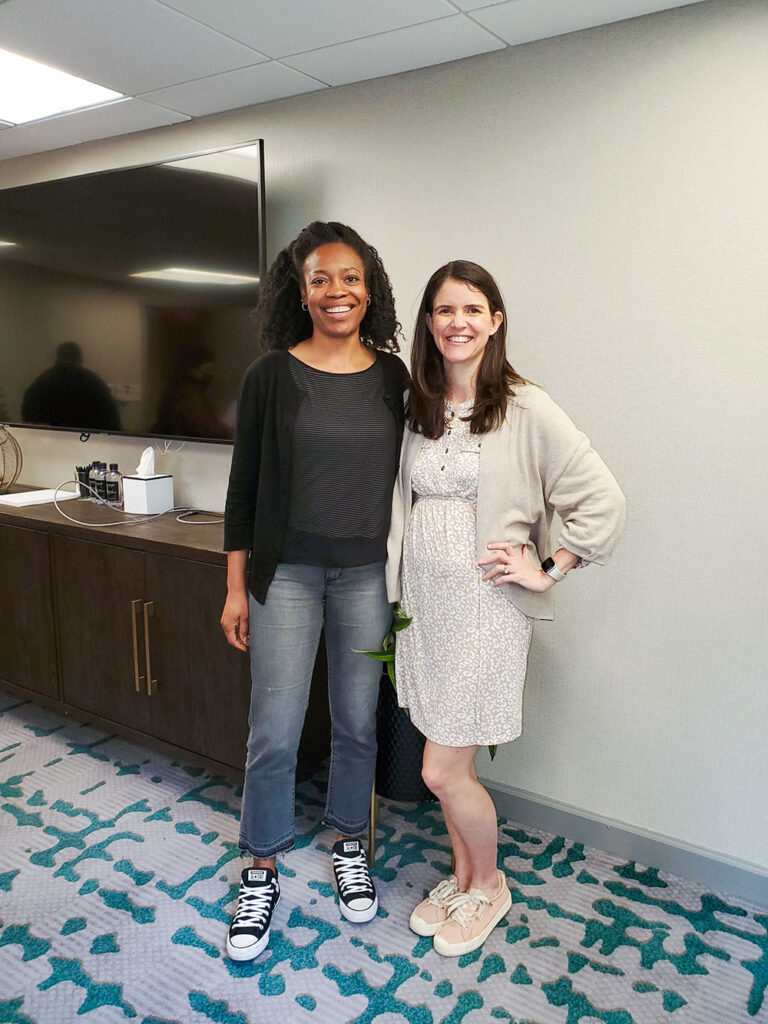
BFM facilitators Tamika Mason and Natalie Thomas standing together at the EIC May 2023 Staff Retreat
